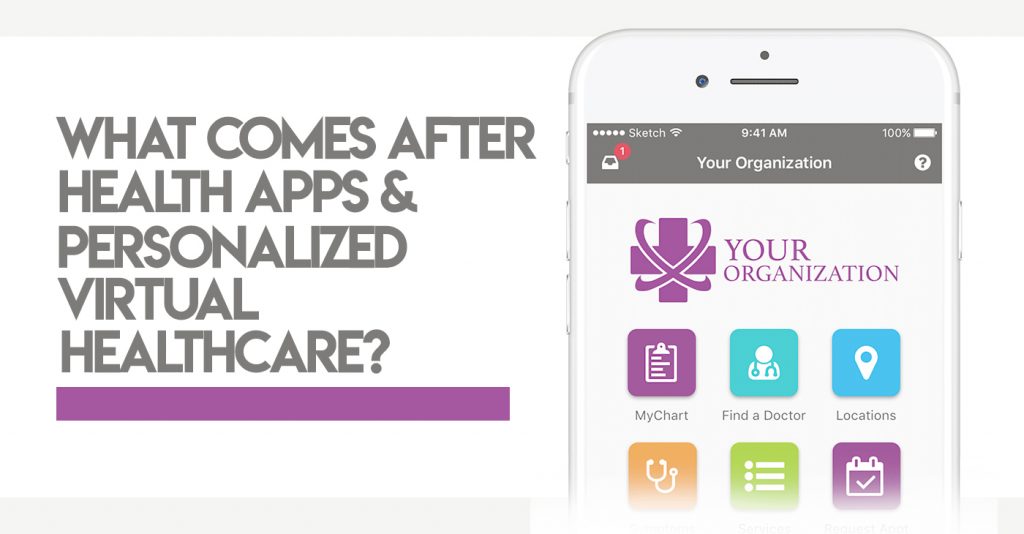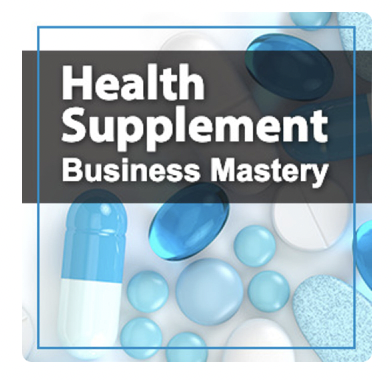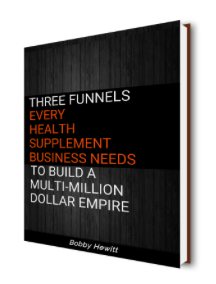
First came the age of health tracking apps with over 80,000 ways to convert every calorie, physical activity and sleep cycle into data. We voluntarily entered our information into our phones, fit bits and other devices. Because after all we measure what matters and improve what’s measured.
It was all so novel, and so fun! A new way to lose weight, become more mindful and healthy. This first layer of data told us what we did. What we ate. How much more we could eat. How many steps we took. And how many more we needed to take to complete the circle of gamification for the day.
The marketing messaging was at the beginning of any new marketplace.
It’s really simple at this stage. Here’s the offer and the promise in order for you to get this benefit. In this case the offer was to download the apps or buy the fitbit. And the promise was that it was going to quantify your life so that you could get the benefit of becoming healthier.
It delivered, but the age of health apps grew up quickly. Along came a deeper layer of data. With the advent of mail order gene tests, blood tests and yes at-home stool and urine testing, the “Doctor Google” and Web MD one-way conversations connecting “What You Did” to “Who are you?”.
As with any maturing market the marketing message had to evolve with the marketplace. The offer + promise = benefit formula changes to… Expand on the promise and benefit using a unique mechanism.
It gets a bit more complex at this stage where competition enters in. The promise of just tracking what you did is outdone by the new promise of what makes you tick in order to deliver the same benefit or a more proven way of becoming healthier. That more proven way is how the benefit itself also gets expanded along with the promise. The unique mechanism is the method in which your unique data is uncovered.
This is one reason why conversion rates die off over time. The marketplace changed but the marketing messaging or product offering did not.
This is the point in which we’ve seen “23andme” enter the market and the countless others like it. Many niching down to serving a specific health condition as a way to expand the promise.
This advancement of the marketplace propels the phase of tracking and learning about your health data. After all, once they have all that data, it’s easy to do something with it.
Quickly moving on to personalization, and changing the conversation yet again to “What do you need” based on your genetic and microbiome make up. After all how can you get more personalized than that?
The biggest problem with personalization is that people’s wants may lead them to take unnecessary supplements that could unbalance their system. Also, needs change over time. So, the process of personalization should be repeated frequently, adding cost and complexity.
Personalization done right includes testing that helps identify an individuals unique nutritional needs. Doctors have been personalizing for years. For example a routine blood test from a physical may determine you’re anemic and your doctor may then recommend you take more iron. That’s personalizing. But that’s all we had before an app.
The way personalization of dietary supplements looks today consists of three steps.
Step 1 – Take an online questionnaire or diet survey. Some add on a simple saliva test on top of this.
Step 2 – Your personal prescription is all bundled up in easy to take daily packets.
Step 3 – Get on a recurring dietary supplement subscription.
There are many supplement companies already out there offering personalized supplement plans.
Here are a few of the early implementations of this:
takencareof.com offers personalized daily vitamin packs.
mynutrigene.com provides fresh liquid supplements, tailor made for you.
personanutrition.com creates vitamin and nutrient combinations that are unique to a customer’s body, lifestyle and health habits. With the addition of cross-referencing more than 600 prescription medications to help avoid drug interactions.
In addition to vousvitamin.com and weilvitaminadvisor.com there are many others are out there.
You can see, some of the examples above have continued to expand and differentiate from each other already. A sure sign of how competitive the dietary supplement market is and how quickly things are moving.
And for those that are a bit less likely to buy dietary supplements online, you can get virtual healthcare for a lot less than your co-pay.
Climbing insurance deductibles are fueling a boom in tele-medicine – medical care by phone, online messaging, or video chat. Wellness startups like Roman, Hims, Hers and Keeps offer virtual care. Similar to the personalized dietary supplement websites above, you fill out an online questionnaire. Then you’re connected with a licensed physician who consults and prescribes remotely. Sitting in the comfort of your own home you get prescription pharmacy drugs for half the cost.
We see the same differentiation strategy the personalized dietary supplements marketplace took, at work here. Niching down to serve vertical markets, Hims offers aliments for men, while Hers offers birth control, skin care products and hair loss treatments.
We went from health data to personalized supplements to personalized virtual healthcare, so what’s beyond that?
I’m sure we’ll continue to see more differentiation as the marketplace fragments through niched brands. As well as continued expansion of the promise and benefit. This is the natural course of all marketplaces over time, the dietary supplement market is no different.
Competition will rise and cut out many new personalized and data driven websites, but before that happens it will catch on like wildfire. Dozens of these types of businesses will first pop up overnight.
After that there’s really only one place it can evolve for dietary supplement companies. A shift towards the prospect, by connecting the personalized physical health data with personalized emotional states.
Perhaps the marketing message asks you disposition questions. Or artificial intelligence combined with machine learning intuitively understands this by compiling all of the available data points you left as a trail online. Or maybe it shifts to the highest level of emotional intelligence and empathy with a live sales rep just for you. In any case, it’s all leading to closely identifying with the prospect. Because no matter what market you’re in, this is the natural progression of the sophistication of any marketplace:
Stage 1) Offer + Promise / Benefit
Stage 2) Expand on the promise / benefit
Stage 3) Expand the Offer Using Unique Mechanism
Stage 4) Differentiate the Unique Mechanism + Expand the Benefit
Stage 5) Identify With The Prospect
Discover the 3 funnels that can help your health supplement business succeed.

Listen to the Health Supplement Business Mastery Podcast for for dietary supplement entrepreneurs and marketers.



